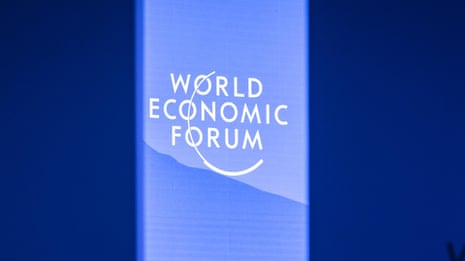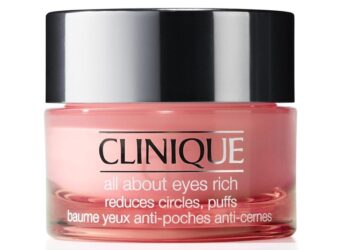Martin set to be appointed Ireland’s next prime minister after ‘constructive’ talks to resolve political standoff
Meanwhile the Irish public broadcaster RTÉ is reporting that Micheál Martin is on course to be finally appointed as the next Irish prime minister today after “constructive” talks this morning on how to resolve the political standoff that disrupted yesterday’s sitting of the Dáil.
“There is now nothing stopping the Dáil electing a taoiseach today following a constructive meeting between government and opposition parties,” RTÉ’s political correspondent Mícheál Lehane said in a social media post.
Key events
US vice-president Vance to travel to Poland next week: Polish media
US vice-president JD Vance is expected to travel to Poland to attend the 80th anniversary of the liberation of the Nazi German Auschwitz concentration camp on Monday, Polish foreign-language public broadcaster TVP World reports, citing a source in the Polish government.
If confirmed, this would be Vance’s first European trip since his and President Trump’s inauguration earlier this week.
We have approached the Polish ministry of foreign affairs to verify this information.
Nato countries need to pay ‘fair share’ before expanding alliance, US envoy Grenell says
Earlier today, I brought you the European view on Nato spending, so it’s only fair to hear the other side, too.
US presidential envoy Richard Grenell spoke via a video link in Davos earlier today, and let’s say he was not particularly impressed with comments from Nato chief Mark Rutte on Ukraine being accepted into the alliance.
As AFP notes, he also echoed US President Donald Trump’s call on Nato members to spend more on defence.
“You’re going to run into a big buzzsaw in America if we have the Nato secretary general talking about adding Ukraine to Nato,” he said.
“You cannot ask the American people to expand the umbrella of Nato when the current members aren’t paying their fair share, and that includes the Dutch who need to step up,” Grenell argued.
“We need to make sure that those leaders are spending the right amount of money. We need to be able to avoid war. And that means a credible threat from Nato,” he said.
The envoy also blasted Trump’s predecessor for not speaking to Russian President Vladimir Putin, saying the new US president was pressuring Ukraine and Russia “to the table”.
“There’s a huge frustration from Americans that we’re spending hundreds of billions of dollars, and our leaders aren’t speaking to each other to try to solve problems,” Grenell said.
Don’t elevate Putin by giving him a summit on Ukraine, Poland’s Sikorski urges Trump
Donald Trump should be wary of giving Vladimir Putin too much prominence by agreeing to an early summit on Ukraine, Polish foreign minister Radosław Sikorski argued in Davos.
Here is his argument in full:
President Trump has started well by recognising that it is Putin who needs to shift his position, not Ukraine.
If I can make one suggestion to the new administration, coming from the depths of experience of a country that warned the rest of the world about Putin and was not always listened to, it is this: this is not the Putin that Trump knew in his first term.
I would be sceptical about granting Putin an early summit. The president of the US is the leader of the free world; Vladimir Putin is an outcast and an indicted war criminal, for stealing Ukrainian children.
I would suggest that Putin has to earn that summit. If he gets it early, it elevates him beyond his significance and gives him a wrong idea about the trajectory of this.
He will be speaking again in a few minutes, alongside the Latvian president, the European Parliament president, the French Europe minister, and senior Ukrainian government ministers. You can follow it through a live stream here.
Europe needs to engage with Trump and explain things have changed, ex Nato sec gen Stoltenberg says
Rutte’s predecessor, Jens Stoltenberg, said that Europe needs to engage with Trump and not avoid having difficult conversations with him, and make the case that “things have really changed” over the last decade.
The Norwegian, who led the alliance during the first Trump presidency, said:
I think the main thing is to engage with him. When there are concerns or issues raised about what the new administration will do I think the best thing is to go to Washington and discuss.
Back in 2017, some allies thought we should just freeze our relations with the US, do almost nothing, and hope things would improve after the next elections.
We did the opposite. We sat down with President Trump and address the issues he had, especially on defence spending.
The reality is things have really changed. When we made the decision to meet 2% of GDP on defence, only three allies met that [target]. Now, it’s 23 allies. That is a big difference and it makes it much easier to tell whoever is the US president that European allies are taking this seriously.
Nato ‘will not able to defend itself’ if it keeps current defence spending levels, Rutte says
Rutte also appeared to agree with some of US president Donald Trump’s grievances about how much European allies spend on defence.
Appearing at the same event, he said:
The problem is not US, the problem is Europe. Trump has consistently made this point that in Europe we are underspending in terms of defence.
Thanks partly also to him, we have seen this upturn in spending in Nato on the European side. We felt that the US was getting a bad deal, and Europe was funding its social model, healthcare system, but underfunding defence.
The problem is that we are not yet all at 2%, and … that 2% is not nearly enough. … Nato collectively is not able to defend itself in four, five years if it sticks to 2%.
It will be much more. Really much more.
We need to step up support for Ukraine, Nato’s Rutte says
Now, let’s turn to Davos, where several European leaders have been speaking this morning about the prospects for Ukraine in 2025.
Nato secretary general, Mark Rutte, said that allies “have to step up, not scale back the support for Ukraine” as he warned that “the frontline is moving in the wrong direction.”
He also warned about the broader significance of the war.
It is not only a European conflict, but a geopolitical conflict, and if we get a bad deal, we will see the president of Russia high-fiving with the leaders of North Korea, Iran, and China. We cannot accept it. It would be a big mistake.
Rutte, who previously served as the Dutch prime minister between 2010 and 2024, also spoke about how the conflict could end:
Whenever, hopefully as soon as possible, Zelensky says he is willing to enter into talks, when we can get Putin to the table, the most important thing is that we have a sustainable peace, so we will never again experience what happened with the Minsk agreement in 2014.
I see too many politicians inside and outside Ukraine contemplating if you would have peace talks, what they would mean for the territories the Russians have captured, and secondly what it means for Nato.
The risk here is that we start negotiating with Putin without Putin at the table, and … he is sitting in his reclining chair in Moscow, just ticking boxes: yes, no, what’s Nato’s position on keeping some of the territory I got…
Timings for Irish Dail today

Lisa O’Carroll
The Irish parliament is to reconvene at 10.30 today after a chaotic row over that saw the formal election of the taoiseach abandoned with the Dáil suspended four times.
Opposition party leaders were due to meet with the leaders of the government parties Fianna Fáil and Fine Gael at 8.30am to try to hammer out a deal that would pave the way for a smooth election.
The row centres on protests that independent deputies who have formally pledged allegiance to the two main parties to form a coalition should not be allowed to sit on opposition benches.
Both sides blame each other for the debacle yesterday. If a deal is hashed out, the election of the taoiseach will happen this morning.
The day ahead
-
The Irish parliament reconvenes for a second attempt to elect Micheál Martin as taoiseach after Wednesday’s sitting had to be abandoned after opposition protests
-
US president Donald Trump speaks at the World Economic Forum in Davos, via a video link (17:00 CET).
-
Separately, French, Polish and Ukrainian foreign ministers speak about Ukraine (11:00 CET), and EU commissioner Valdis Dombrovskis takes part in a panel about tariffs (11:30 CET).
-
Slovak prime minister Robert Fico convenes a national security council meeting after alleging that opposition forces are trying to overthrow his government in the latest escalation of the ongoing political crisis in the country
Catch-up: Italy’s Meloni faces questions about Libyan general’s arrest
Angela Giuffrida
Giorgia Meloni’s government is under pressure to clarify why a Rome court refused to approve the arrest of a Libyan general accused of war crimes, allowing him to return home to a hero’s welcome on an Italian secret services flight in what critics believe was a tactic to shield alleged abuses committed in the north African country as a result of a migrant pact with Italy.
Catch-up: France’s crack down on drug traffickers
One of France’s most wanted suspected drug traffickers was due in court in Marseille after his extradition from Morocco amid a broader crackdown on drug-related crime.
Our Paris correspondent Kim Willsher has the latest.
Catch-up: Ukraine war briefing
We will be also talking about Ukraine today as many senior European politicians have already or will speak on this topic in Davos today.
To catch up on the latest from the frontline, see our explainer below.
Morning opening: (Interruptions.)

Jakub Krupa
There is a storm brewing in Ireland. In both the literal and figurative sense.
Large parts of the country are covered by Met Éireann’s Status Red weather warnings for Thursday night and Friday as Storm Éowyn threatens widespread disruption. Authorities have described it as potentially “among the severest storms that Ireland has ever seen.”
But before then, the country’s parliament, the Dáil, will face Day 2 of its own political storm after parliamentarians could not agree a way forward on Wednesday and failed to confirm the next prime minister, Micheál Martin.
After chaotic scenes in the chamber – best captured in the official transcript as near constant (Interruptions.) as individual lawmakers raged about “not acceptable,” “unbelievable,” and “outrageous” events – the Irish press this morning reports on “frantic efforts” overnight to avoid a second day of disorder.
But you know things are somewhat unusual when the Irish Times’s political podcast seeks to explain the situation with a quote from a famous boxer turned philosopher Mike Tyson: “Everyone has a plan until they get punched in the mouth.”
I will guide you through today’s events in Ireland and elsewhere, including Davos, where we hope to hear from US president Donald Trump. He is not there and will speak via a video link, but his presence in the White House has dominated the discussions so far, so it’s just as well that we will hear from the man himself now.
I am sure this will calm our nerves, without (Interruptions.), right?
It’s Thursday, 23 January 2025, and this is Europe Live. It’s Jakub Krupa here.
Good morning.
If you have any comments or suggestions, email me at [email protected]. I am also on Bluesky at @jakubkrupa.bsky.social and on X at @jakubkrupa.







